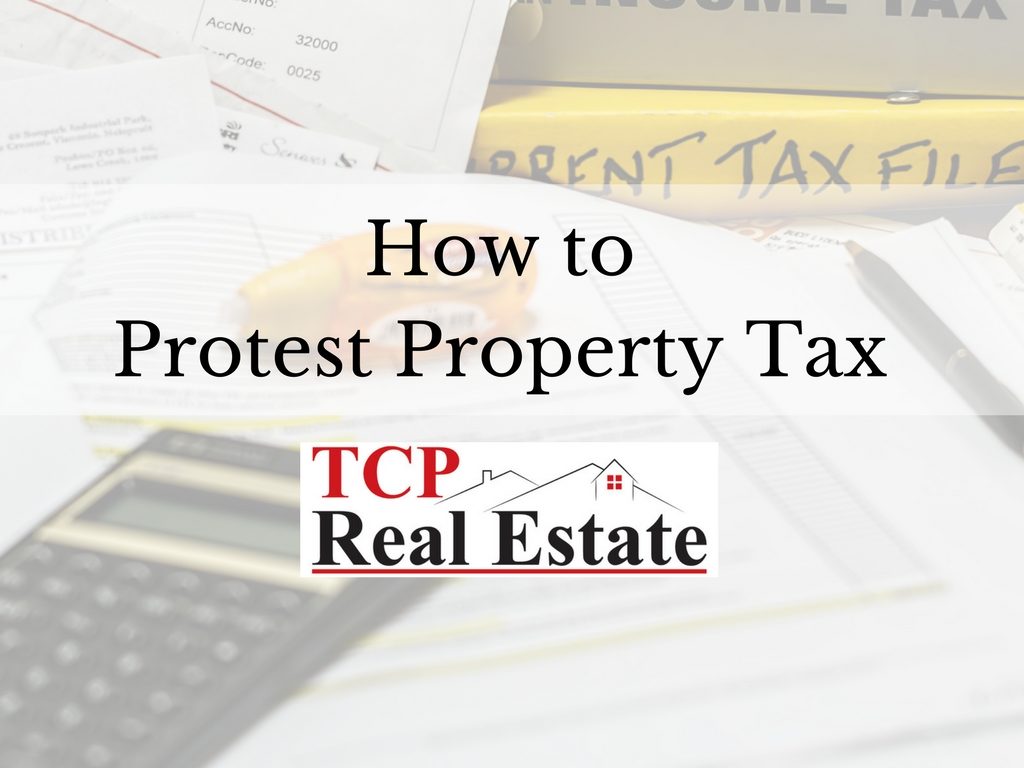How to Protest Property Tax
There were some changes made last year to the Texas Property Code that changed dates to filing notices to protest property taxes, including an earlier deadline. With home values across Texas varying widely and changing yearly, you may want to either hire a professional to handle the protest or you go it alone. Either way, the process is the same. Keep in mind that your home’s appraised value for the year is based on its condition as of January 1st. If you had any damage or upgrades after that date, it will not affect the taxable value of your home this year.
You may protest your property value for some of the following reasons:
- the appraisal district value is too high
- your property is unequally appraised
- the appraisal district denied a special appraisal on your property
- the appraisal district failed to provide you with required notices
- other matters prescribed in the Tax Code Section 41.41 (a)
Here is a step-by-step guide to protesting your property tax appraisal.

FILING THE PROTEST
The deadline to protest this year’s appraisal is May 15, 2018 (earlier if filing online). You have a couple options: 1. You can use the form on the back of the “Notice of Appraised Value”. It has all your information already listed on the form; 2. In select counties, you can go file your protest online on your county website:
MEETING THE APPRAISER
The second step after you’ve filed your protest is meeting with the appraisal review board (ARB), an independent and impartial group of residents, appointed by either the local administrative district judge or the appraisal district’s board of directors, that are authorized to resolve protests. The appraisal district where you filed your protest will send you a letter that will list a date with an informal meeting with an appraisal staffer and a formal hearing date with the ARB. The informal meeting is where the numbers and documentation will be reviewed and concerns addressed. The staffer will try to help resolve your objections. Be sure to bring the comparable homes information, and any other information that may help your cause. Once reviewed, you may get an offer to reduce your home’s value by a certain amount. You can either accept that value or continue to the formal hearing by the ARB.
FORMAL PROTEST HEARING
If you aren’t satisfied with the outcome at the informal meeting, you will then have a formal hearing with a three-member panel of ARB members. Prior to the hearing, you will be mailed/given access to a copy of the ARB procedures, a letter stating you have the right to inspect and obtain copies of the data, schedules, formulas, and information that will be presented by the chief appraiser at your hearing. The hearing usually lasts 15-30 minutes, so it’s important to be on time and prepared for your hearing. You will be placed under oath and given the opportunity to present evidence to support your case. Be sure to stick to the facts and present the information in an organized manner. The panel will review the documentation and recommend a value which is reviewed by the full ARB. Your final assessed value will arrive by certified mail.
If still unsatisfied with the decision, you can then file an appeal with the state district court in the county your filed your protest, binding arbitration, or the State Office of Administrative Hearing. There are time restrictions for challenges depending on where you file your appeal. They can range anywhere from 30-60 days after receipt of the ARB decision.
If you have additional questions or need help finding comparables that support your case, please contact TCP Real Estate today!
